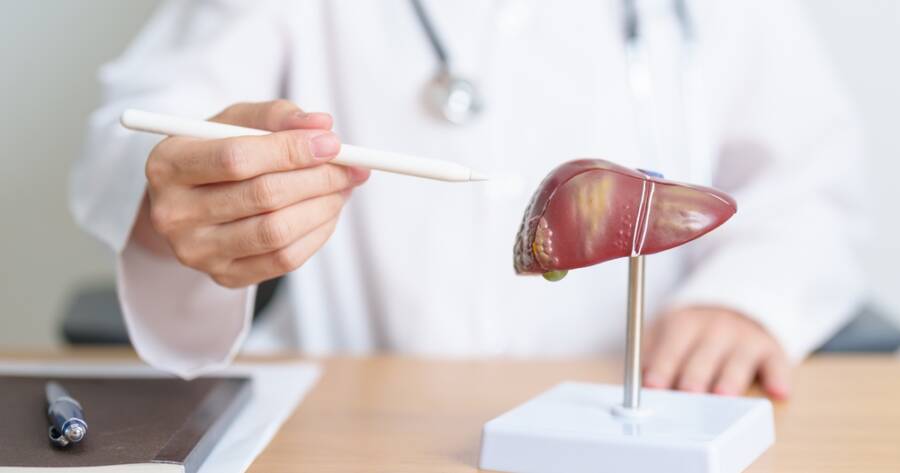Fatty liver disease often develops without noticeable symptoms, making it easy to overlook. Subtle signs like fatigue, discomfort in the upper right abdomen, or unexplained weight gain could signal a problem. Recognizing these early clues is key to preventing further damage.
Persistent Fatigue: A Common but Overlooked Symptom
Fatigue is one of the most common silent signs of fatty liver disease, yet it’s often dismissed as a result of a busy lifestyle or lack of sleep. In reality, the buildup of fat in the liver can impair its ability to function properly, leading to a general feeling of tiredness and low energy. When the liver struggles to process nutrients and filter toxins, the body becomes more fatigued, even with adequate rest.
If you’re experiencing persistent fatigue that doesn’t improve with sleep or rest, it could be a warning sign of underlying liver issues. While fatigue can have many causes, it’s important not to ignore it, especially if you notice other subtle symptoms related to liver health. Consulting a healthcare provider to investigate the cause of unexplained fatigue can help catch fatty liver disease early and prevent further complications.
Unexplained Weight Gain: Could It Be Linked to Your Liver?
Unexplained weight gain, particularly around the abdomen, could be a sign of fatty liver disease. The liver plays a crucial role in metabolism, helping to process fats and regulate energy. When the liver becomes overloaded with fat, it may struggle to function efficiently, causing fat to accumulate in the body. This can lead to weight gain, even if your diet and exercise routine haven’t changed significantly.
Additionally, fatty liver is often linked to insulin resistance, which can make it harder for the body to manage blood sugar and fat storage, further contributing to weight gain. If you notice a gradual increase in your weight, especially around your midsection, without a clear reason, it’s important to consider liver health as a potential factor. Addressing fatty liver early can help prevent more serious complications like liver fibrosis or cirrhosis.
Discomfort or Pain in the Upper Right Abdomen
Mild discomfort or pain in the upper right abdomen, just below the ribs, could be a subtle sign of fatty liver disease. This discomfort is often caused by the liver becoming enlarged due to fat accumulation, which puts pressure on surrounding tissues. The pain may come and go or feel like a dull ache, making it easy to ignore or attribute to other digestive issues.
While occasional discomfort in this area might not seem alarming, persistent or worsening pain could indicate that the liver is struggling to function properly. If you experience unexplained discomfort in the upper right abdomen, especially when paired with other signs like fatigue or weight gain, it’s important to seek medical advice. Early detection of fatty liver disease can help you take proactive steps to protect your liver and overall health.
Elevated Liver Enzymes: A Hidden Clue in Blood Tests
One of the more hidden signs of fatty liver disease is elevated liver enzymes, which can often be detected through routine blood tests. When the liver is inflamed or damaged due to fat buildup, it releases higher levels of enzymes such as ALT (alanine transaminase) and AST (aspartate transaminase) into the bloodstream. These elevated enzymes may not cause noticeable symptoms, but they can serve as an early indicator of liver problems.
Many people with fatty liver disease are unaware of their condition until it’s detected during routine lab work. If your blood tests show elevated liver enzymes, it’s important to follow up with your healthcare provider to explore the underlying cause. Regular monitoring and lifestyle changes can help manage fatty liver disease and prevent further liver damage.
Learn More About Fatty Liver Disease
Fatty liver disease often progresses silently, but recognizing subtle signs like fatigue, unexplained weight gain, abdominal discomfort, and elevated liver enzymes can help with early detection and management. Left untreated, fatty liver disease can lead to more severe conditions like cirrhosis or liver failure.
By learning more about the symptoms and risk factors, individuals can take proactive steps to protect their liver health through lifestyle changes, such as a healthier diet, regular exercise, and routine medical check-ups. Staying informed about fatty liver disease is essential for preventing serious complications and maintaining overall well-being.




